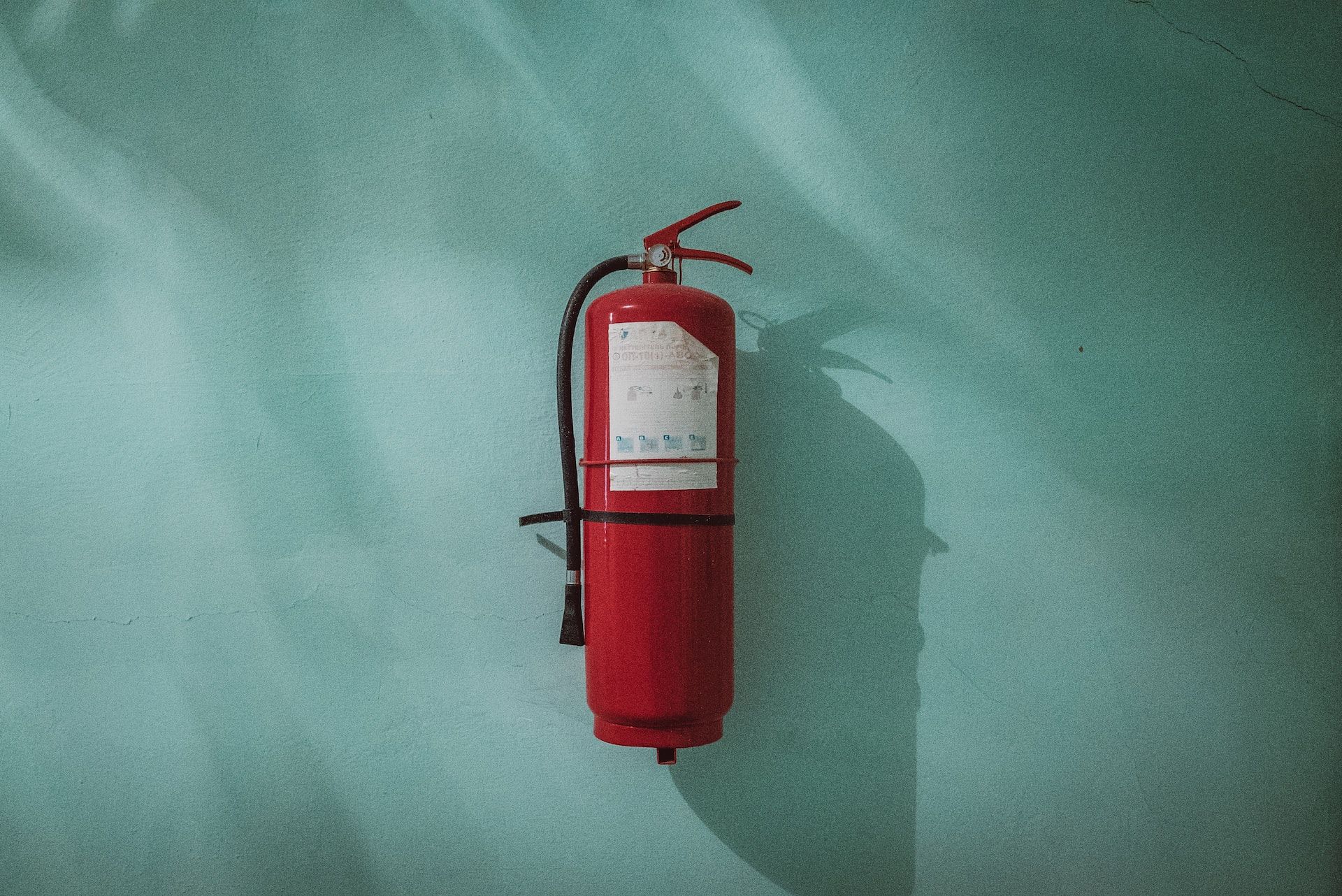The past few years have been full of twists and turns for the events industry, with lockdowns and restrictions causing mass disruptions and cancellations of events. Even now that the chaos of Covid is mostly behind us, the impacts of staff shortages and the cost-of-living crisis are also having an effect on the shape and stability of events.
If there's one thing the last few years have shown us is that it’s more crucial than ever that organisers develop a solid contingency plan they can rely on if things go pear-shaped. Below, we've listed the key elements to consider when contingency planning so that you and your team can pull off well-organised, successful events no matter the circumstances.
Table of Contents
1. Prepare an in-depth Contingency Plan
2. So what could go wrong?
3. Guidance for planning in 2023
Prepare an in-depth Contingency Plan
First things first, what actually is a contingency plan and how is it different to a risk assessment? A risk assessment is a legal requirement for any event, and comprises a list of any and all possible risks that could arise at your event, along with the likelihood and how you'll mitigate these risks in advance of, and during, the event.
A contingency plan, meanwhile, exists to provide you and your team with structured measures and solutions to follow, should things go wrong. It should be a comprehensive plan informed by your risk assessment, and is used to make sure your team are on the same page and able to respond quickly to situations that arise at the event.
Here's how to use a risk assessment and contingency plan together:
- Use our risk management template to list all the potential risks associated with your event and calculate the likelihood and severity of an incident concerning each of the risks.
- Decide what should be done in advance of the event to reduce the likelihood and severity of the risk, and implement all of the mitigating steps - this will ensure that any issues that do arise are as minimal as possible.
- Create a contingency plan using our template below, to outline what will be done in the event that any of the incidents or issues listed on the risk assessment do happen on the day.
- Share this plan with everyone working at the event to make sure all staff know what to do in the case of an issue arising. Ensure good communication with staff on the day to be able to deal with issues swiftly and efficiently.
Download our example template below, and use it as a helpful guide for all your events going forward.

So what could go wrong?
While event organisers plan events in meticulous detail, it's virtually impossible to account for all of the areas that could pose a threat to your event running smoothly. Below, we've listed some of the obstacles event organisers may face in 2023. This list is by no means exhaustive, but will hopefully get you thinking ahead and preparing for all eventualities.
Event cancellation
There is always the chance that factors out of your control may mean that your event must be cancelled. So it's best to make sure you have negotiated flexible cancellation policies with your venue and suppliers to account for this contingency. Hire Space can also negotiate on your behalf with venues to ensure you have the flexibility you need.
The weather takes a turn for the worse
If you were planning on using an outdoor space for your event, do you have a backup in case it rains? And if you do, you need to make sure this indoors space can accommodate all of your attendees, and that there are sufficient facilities available to make your attendees comfortable - including seating, water stations, and accessible toilets and routes through the venue.
The tech fails
Even with the best laid plans, there are many things that can go wrong with event technology. The best way to plan for this is to have an experienced event technologist and AV technician on hand to help if things go wrong. This is especially important if your event is hybrid and you have virtual attendees becoming increasingly frustrated at their blank screen.
If your registration system goes down, do you have someone who can sign in people manually? Additionally, if the internet in your venue goes down, you need to have a quick and efficient backup: always make sure your venue is prepared with backup internet connections.
Health and safety issues
There are all sorts of health and safety issues to take into consideration at your event. Make sure you have a solid health and safety plan in place to cater to all eventualities such as fires, accidents, medical emergencies etc. Ensure you have a first aider on site and that entrances are not blocked in case emergency care is needed.
Our risk assessment template provides a starting point to identify these potential hazards, and ensure you're prepared for them.

Security breaches
Gatecrashers are not uncommon, so how will you ensure they are dealt with efficiently? What if some attendees have a bit too much to drink? You'll also need to consider worst case scenarios - like a terror threat. Thoroughly brief your security team so everyone is on the same page and knows exactly how to act when emergency security issues arise.
Your sponsors encounter issues with their stands
No matter how many checks you do the night before and the morning of, sponsors will find issues with their stands. Have one of your events team based at a table in the sponsor hall for sponsors to head to in case they need something sorted out. Also, make sure this person keeps a record of what the sponsor wants/is complaining about and the exact time the complaint was made. This helps cover your back if issues arise later or post-event.
Your team is unprepared
Failure to prepare is preparing to fail, and nowhere is that more true than at an event. It is crucial that you and your team are completely synchronised at every single step of the way, and that everyone is familiar with the contingency plans should an emergency occur. Make sure all your team members have reviewed your contingency plan, your risk assessment, and have signed them to confirm this. Have copies in your staff room, on each team member's clipboard, email it to them, dictate it to them, do whatever you need to do to ensure everyone is prepared for all situations.
Speakers or special guests don't show up
If you've brought attendees to your event with the expectation of hearing certain speakers, or meeting a special guest, it can be incredibly embarrassing and stressful if they pull out at the last minute. You'll need to be prepared for this outcome, and have something else up your sleeve - staging a panel discussion is often a safer bet, as if one speaker doesn't show up, it's not the end of the world.
Other potential pitfalls
There are many more things that could go wrong in events, which are useful to be aware of. Here are some more areas to consider:
- Road closures and strikes affecting travel
- Oversubscribed - or undersubscribed - events and sessions
- Catering issues: having too much or too little food, or the wrong types of food for your audience's dietary requirements
- Problems with facilities like toilets, water fountains etc.
- Power problem such as power cuts, broken heating or air conditioning, faulty plugs
- Staff shortages due to illness etc.
- Rude, aggressive, or antisocial guests
- Supplier mix ups - delayed or incorrect deliveries of furniture etc.
- Schedule issues, such as overrunning sessions
- Attendee or speaker medical emergency
- Disruptions (such as road blocks or protests) outside the venue

Guidance for planning in 2023
Knowing how to avoid the aforementioned issues, or even simply how to go about organising an event in a changing environment, can be tricky. Read on for our guidance for planning events in 2023.
Check your contracts and cancellation clauses
During Covid, it was common for suppliers and venues to provide generous cancellation clauses to entice customers to book. However, with Covid restrictions not expected to play a significant part in cancelling events in 2023, cancellation policies are much tighter. Make sure you review your venue and suppliers' policies carefully so that you know what cover is included if you, or your suppliers, have to cancel the event for any reason.
We strongly recommend looking into event insurance to cover travel and the event itself, particularly if your event involves international travel, or is at higher risk of things going wrong.
There are other things to look out for when venue-sourcing for your events, which you can read more about in our article on finding the perfect venue in a post-pandemic world.
Have a hybrid option in place
While events are largely able to go ahead in-person, it's worth considering having a hybrid element as a way to bring in a wider audience and enable guests to attend from elsewhere. This means that if delegates or speakers can't travel on the day, they'll still be able to participate in the event.
Check whether your chosen venue is hybrid-ready and has the right relationships in place if they don't have the capability and technology for hybrid in-house. Hire Space can help to make these arrangements, and find the best rates for hybrid suppliers to support your event.

Bring in reinforcements
It can be tough to navigate the events landscape at the moment, so if you're feeling like you're drowning in different guidance and opinions, you're not alone. Hire Space 360 could be a great contingency option if things start falling apart, or even as an option to prevent things going wrong in the first place!
Hire Space 360 offers full-scope event support, from venue sourcing to access to our state-of-the-art online event platform Arena, help with registration technology, assistance with contracting and payments, supplier sourcing, and on-demand staffing from event & live stream experts.
Learn more about Hire Space 360
Put an emergency team in place
In terms of contingency planning for the day of the event itself, devise a core emergency team who are able to resolve any issues you may face. This will almost definitely need to include a couple of tech wizzes, someone who is constantly in touch with the speakers, as well as a dedicated person to monitor live chat or email - so that if any delegates are facing difficulties, this can be resolved quickly and easily before it becomes an issue.
Assign dedicated roles and responsibilities to each team member and create a plan for how you'll communicate issues and tech emergencies to your team and/or speakers. Consider setting up a Whatsapp group so everyone can see when something needs to be actioned, and establish when you'll need to escalate to a more senior decision-maker.
Have a backup tech option for live streams
If your live stream is kaput or your platform has packed it in and there's no saving it, you'll need to have a backup. Make sure you have an emergency backup stream ready in the wings in case of emergencies. You should also create a strategy for keeping your attendees informed and directing them to a new platform if needed.
Another backup you could put in place for workshops, webinars, or meetings is to provide a conference call option. This way, if internet completely fails, participants and speakers can rejoin via their phones without requiring an internet connection.
Hope for the best, plan for the worst
Go through each element of your event with a fine-toothed comb; identify what could possibly go wrong at every stage and create a backup or solution for this. Try to create backup plans for your backup plan! It never hurts to be prepared, and the larger or more complex your event is, the more straightforward your life will be if you've thought of everything beforehand.
Having a plan in place will reassure not only you, but your clients and stakeholders too, that the event will be able to run as planned - no matter what life throws at you. Download our template below to get started.
Whilst the last few years have been difficult, it's important to remember the sense of community that developed within the events industry, and the resilience and adaptability of event planners that have come to the fore. While 2023 poses fresh challenges, let's all stay focused and use our newfound skills to inform how we plan our events for this year and beyond.
If you'd like to chat to us about contingency planning or would like more guidance on planning events in 2023, get in touch with our experts below.



